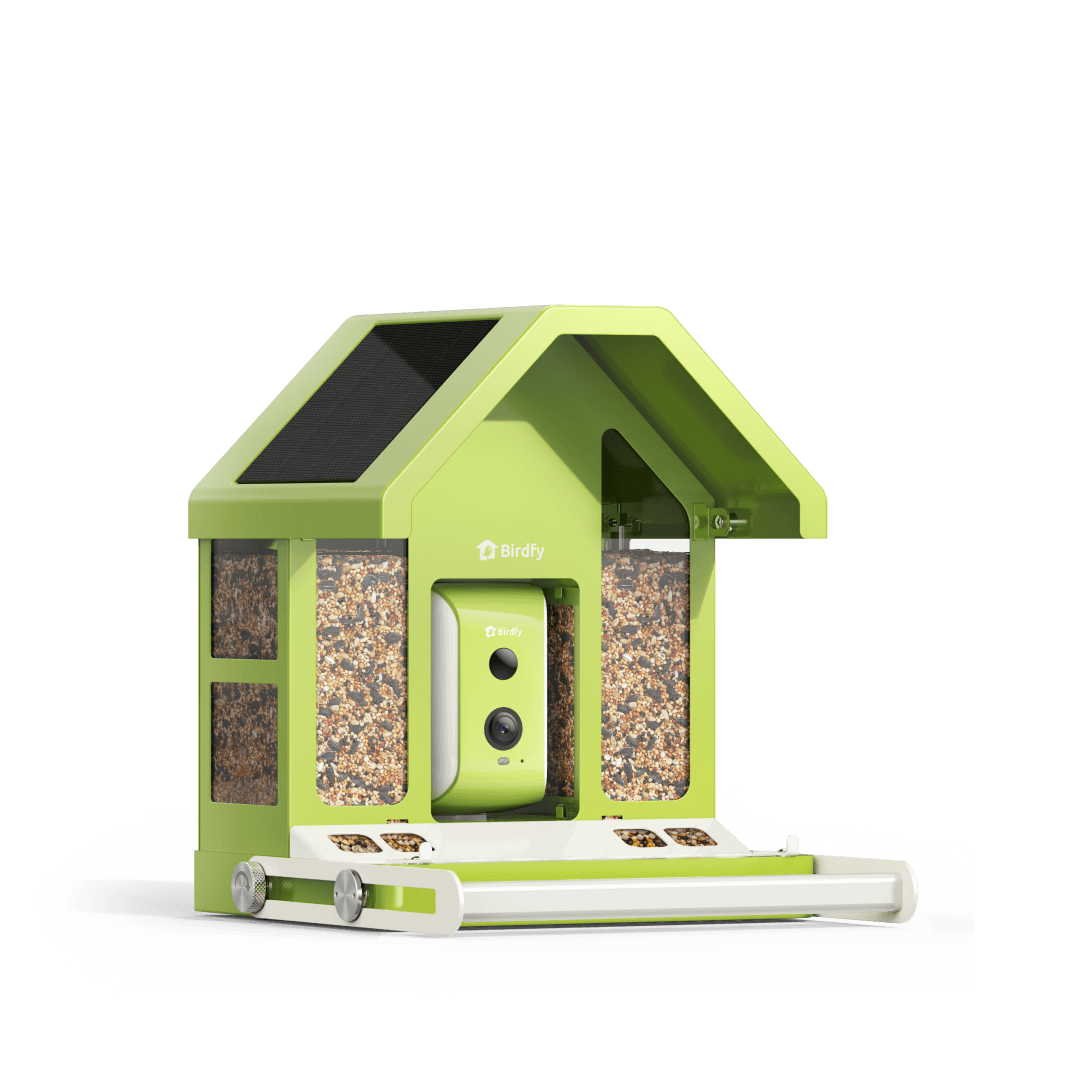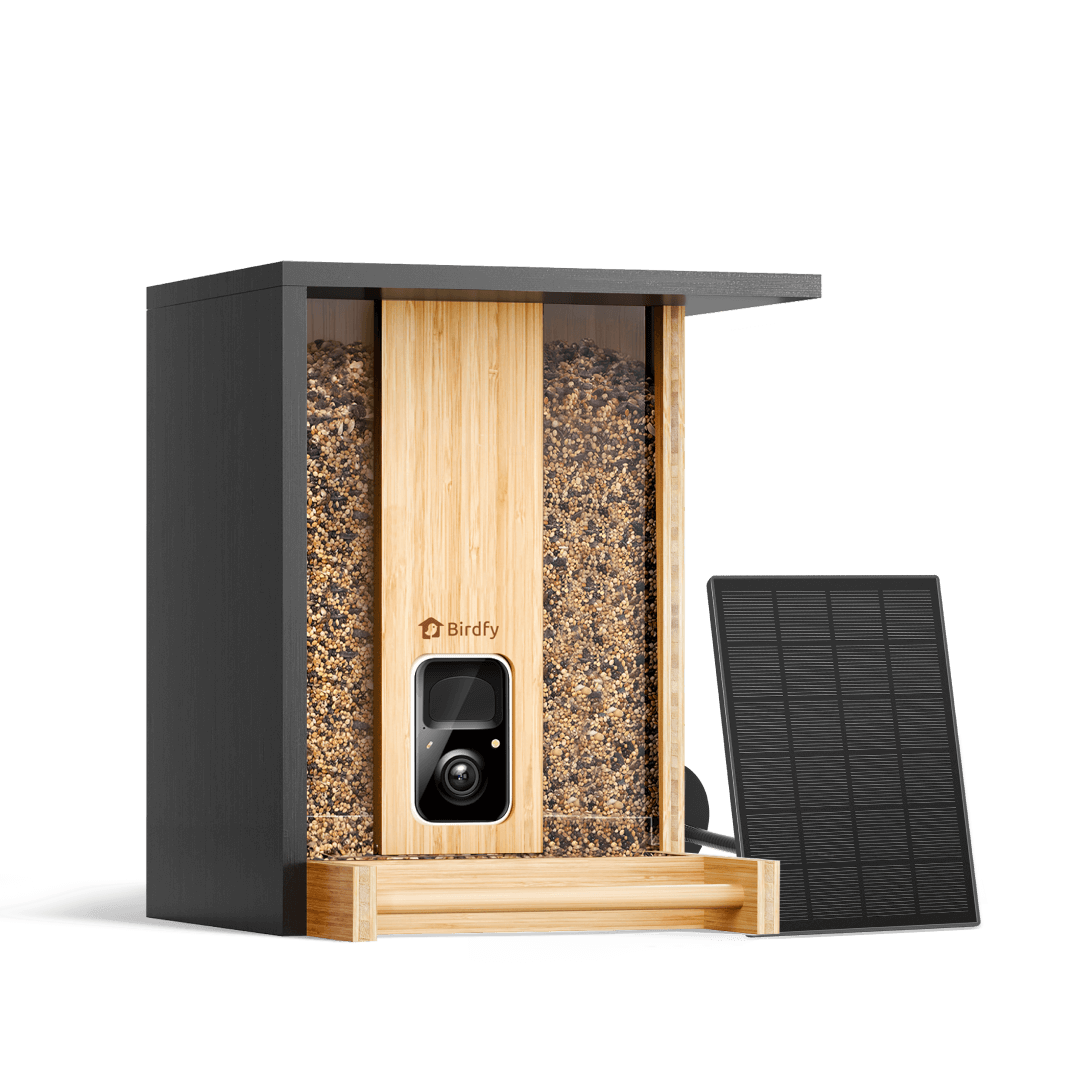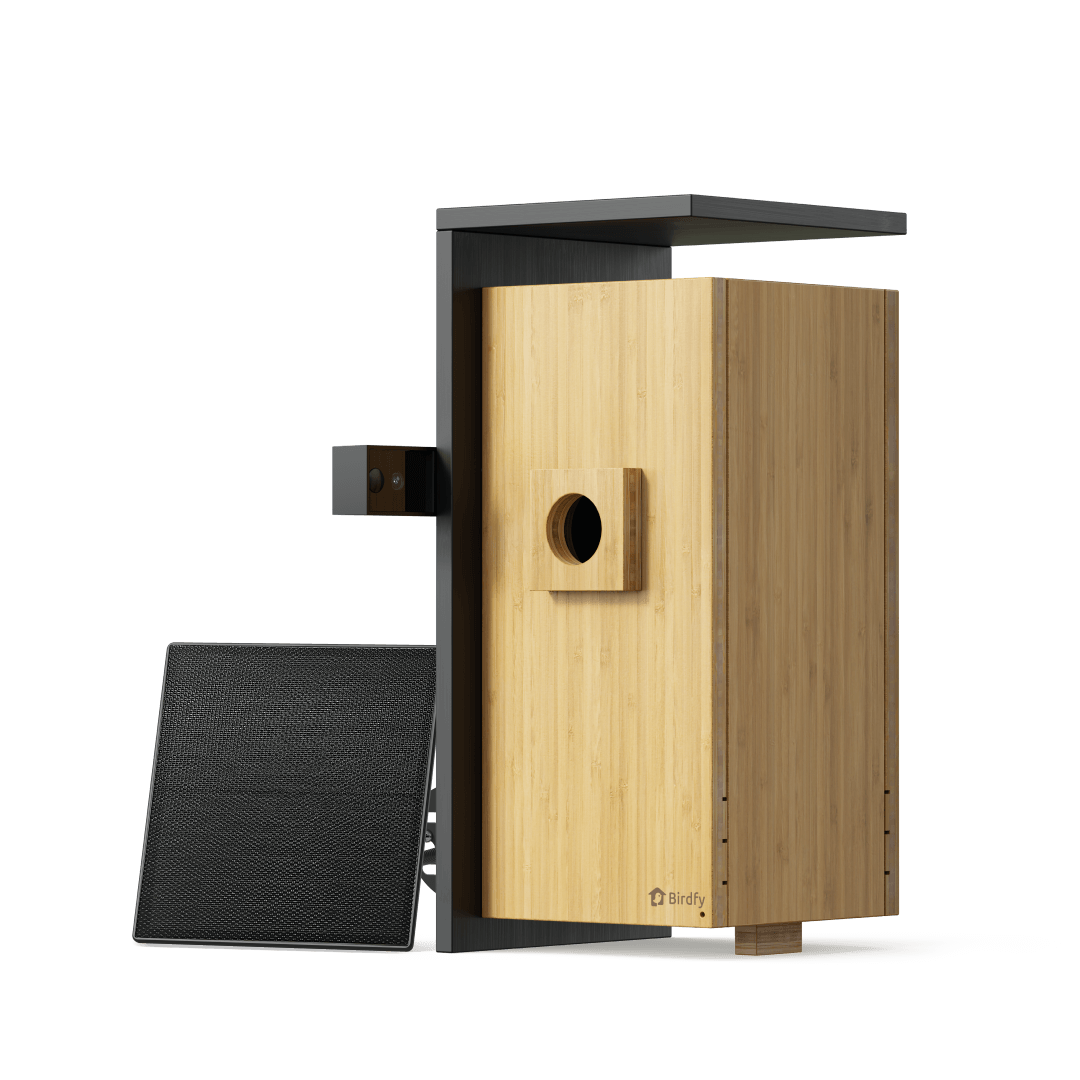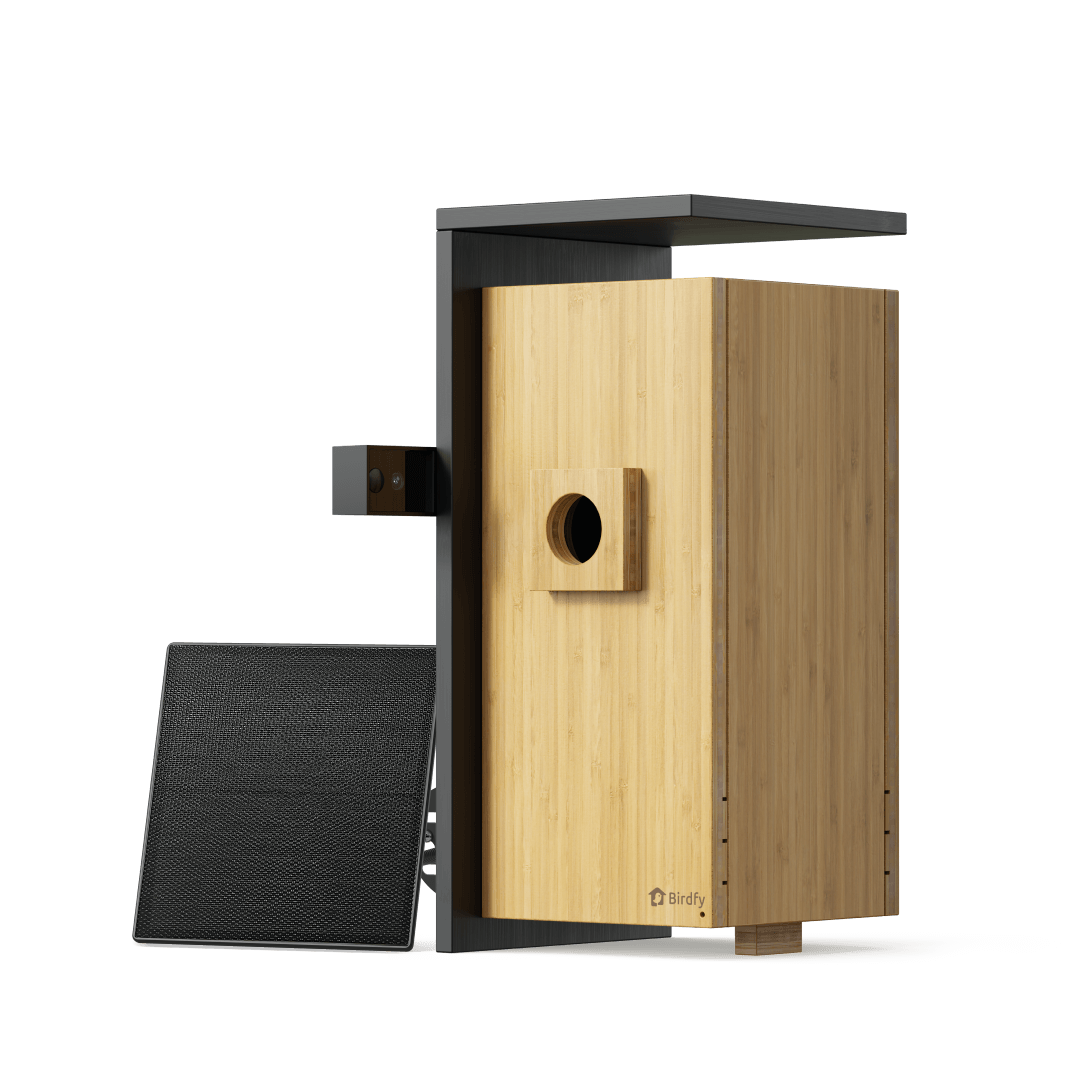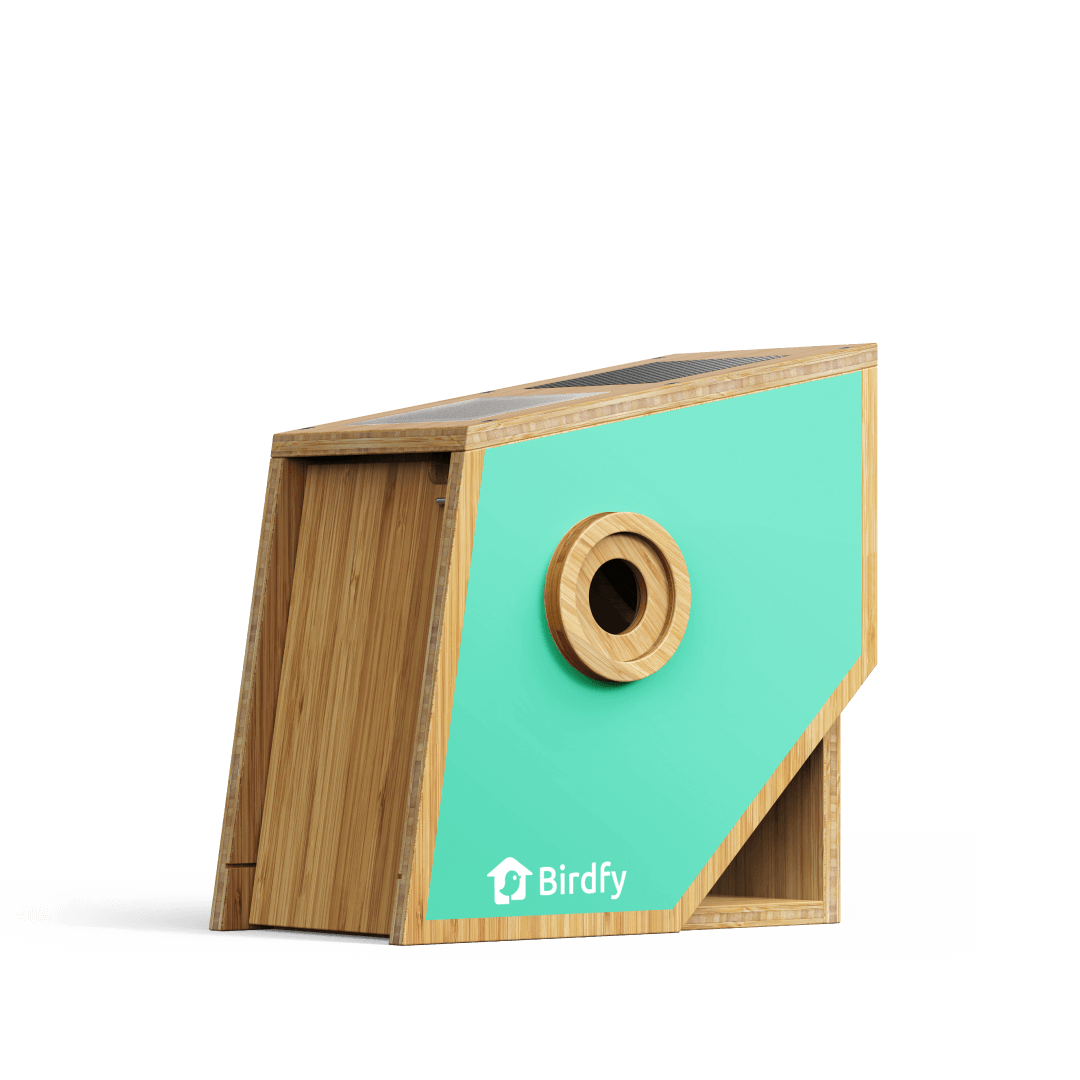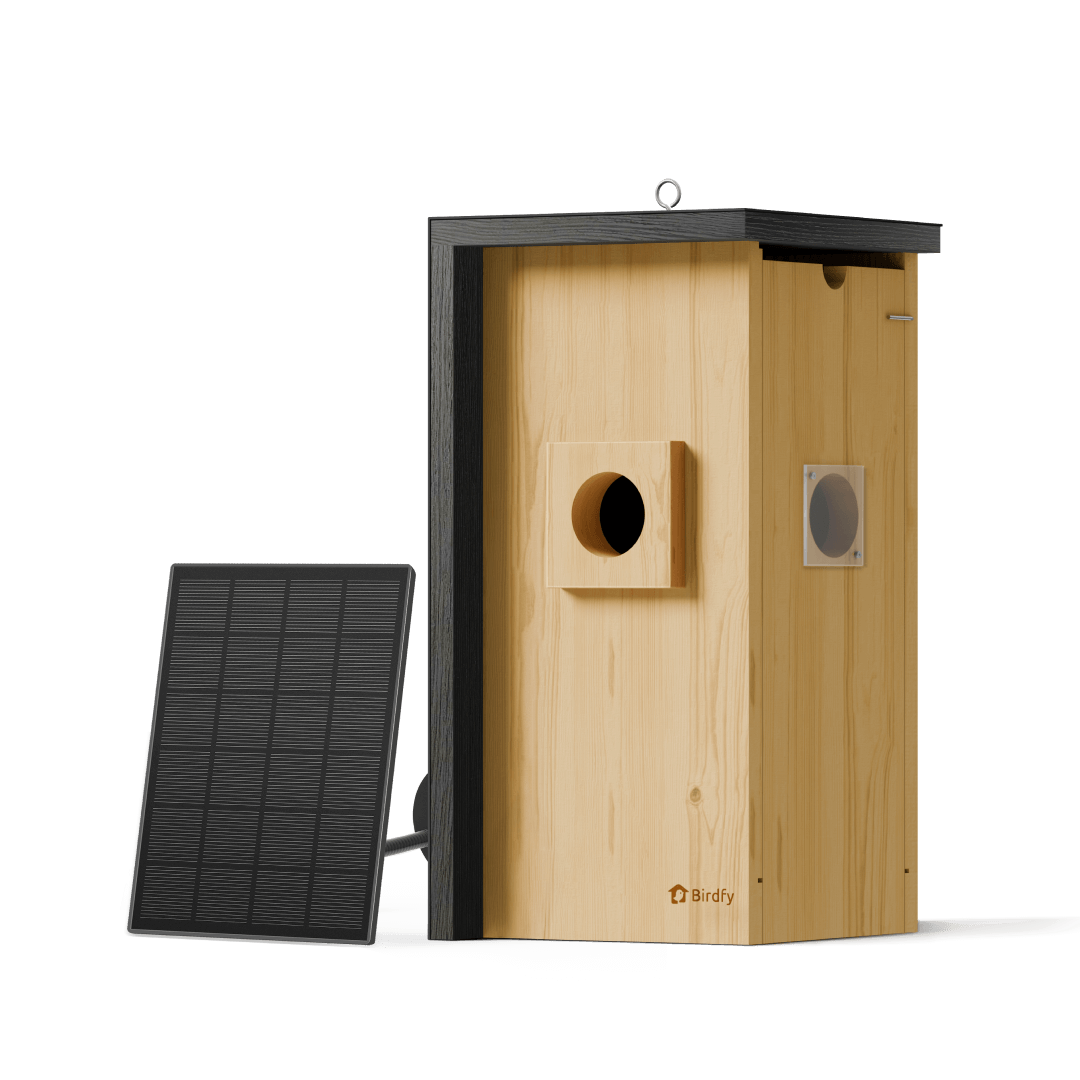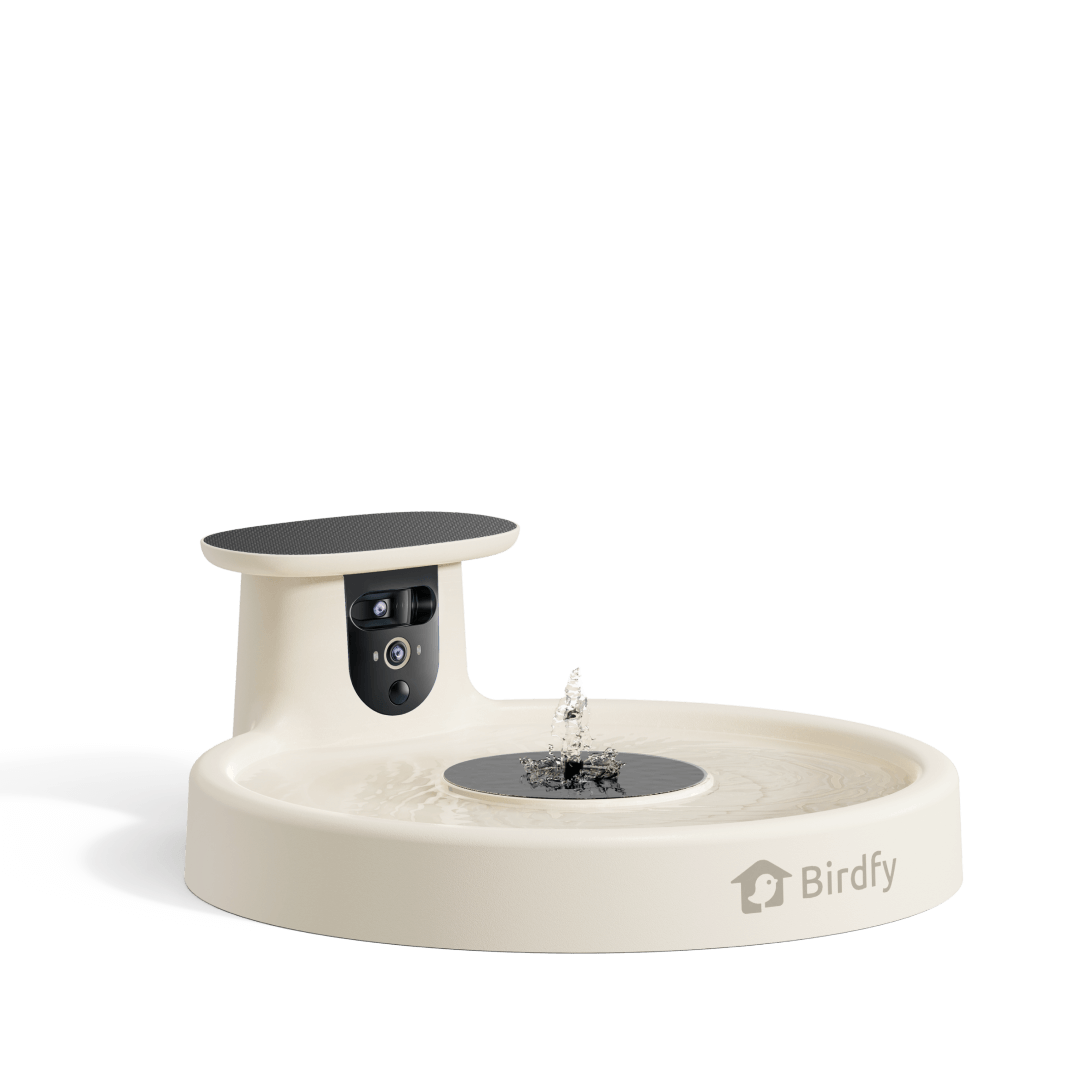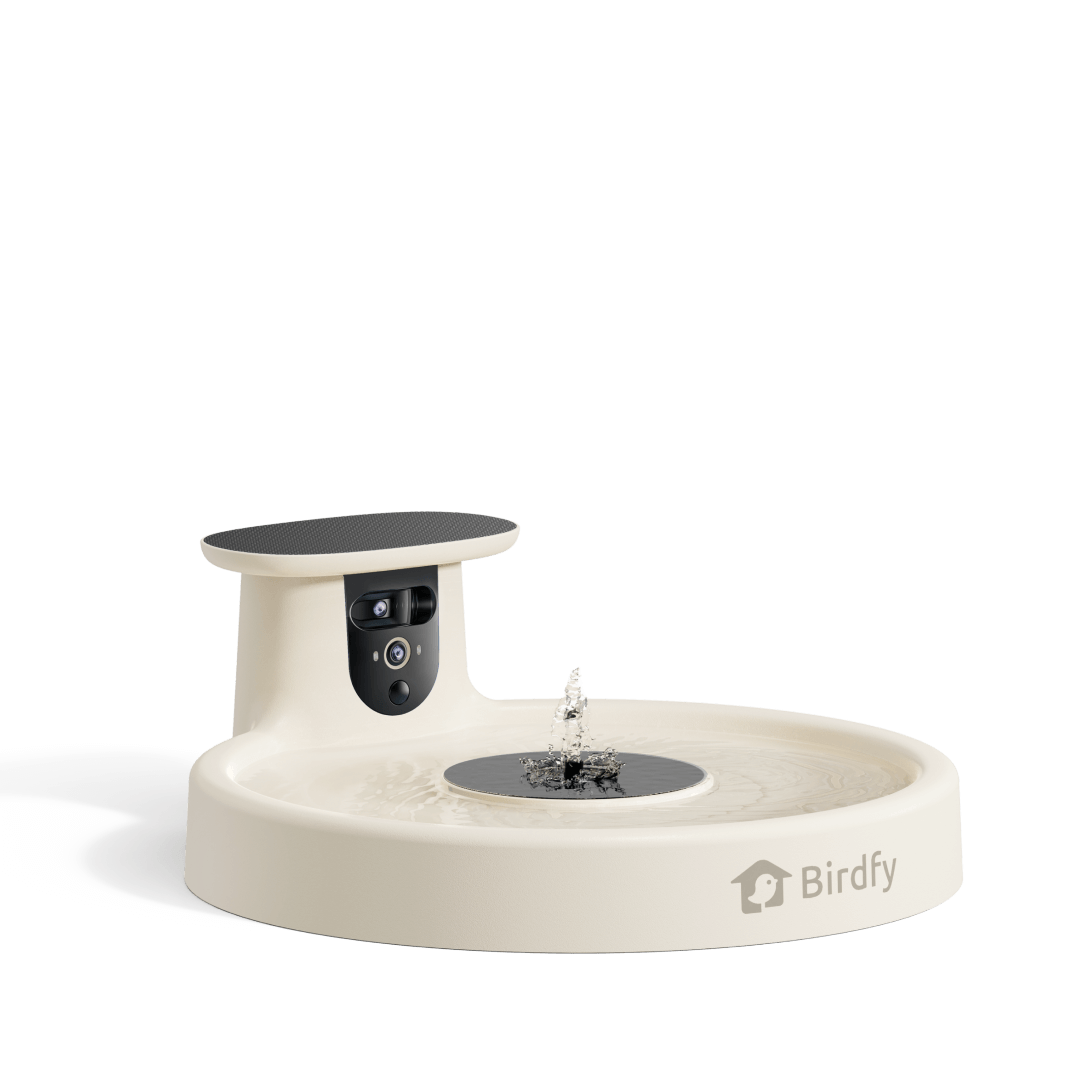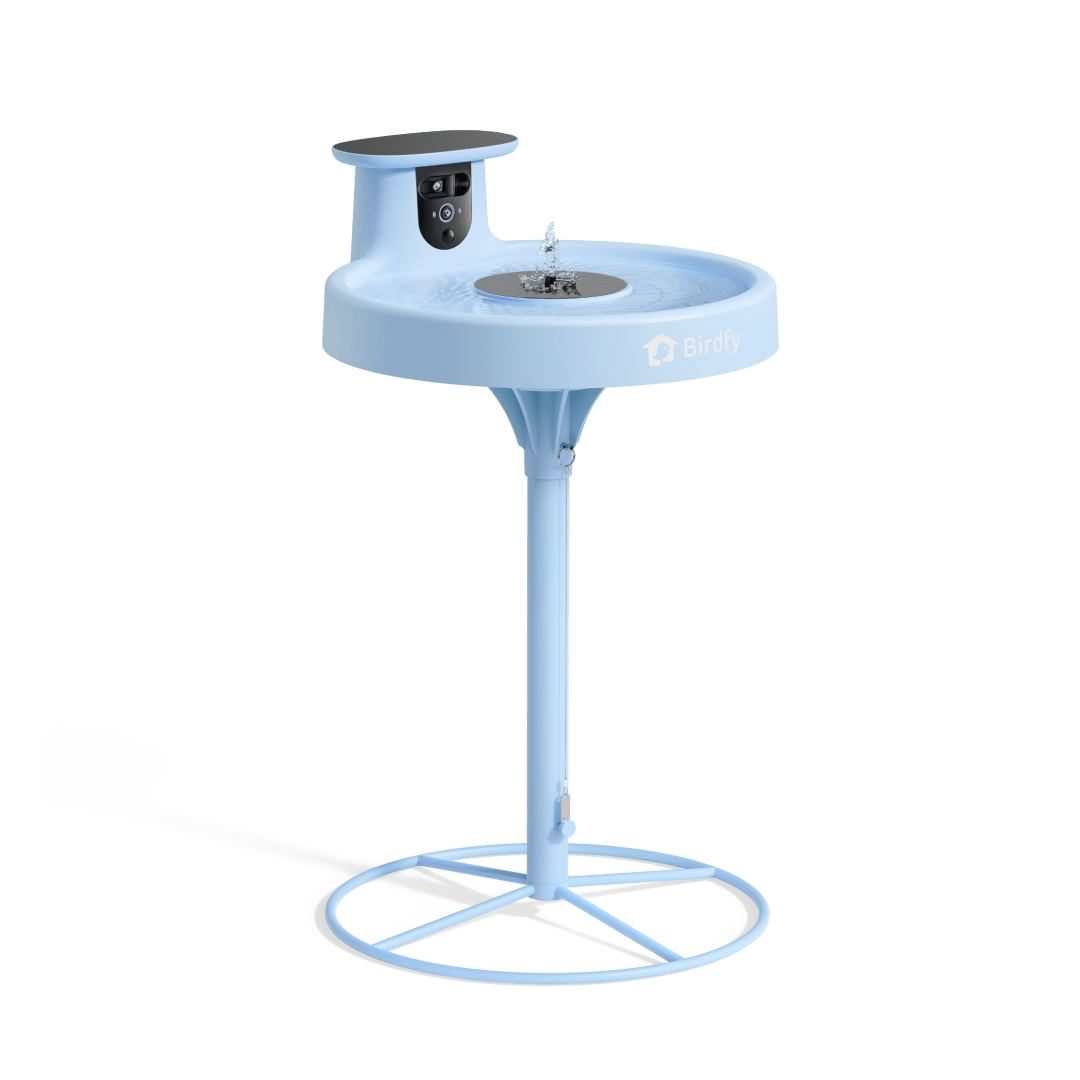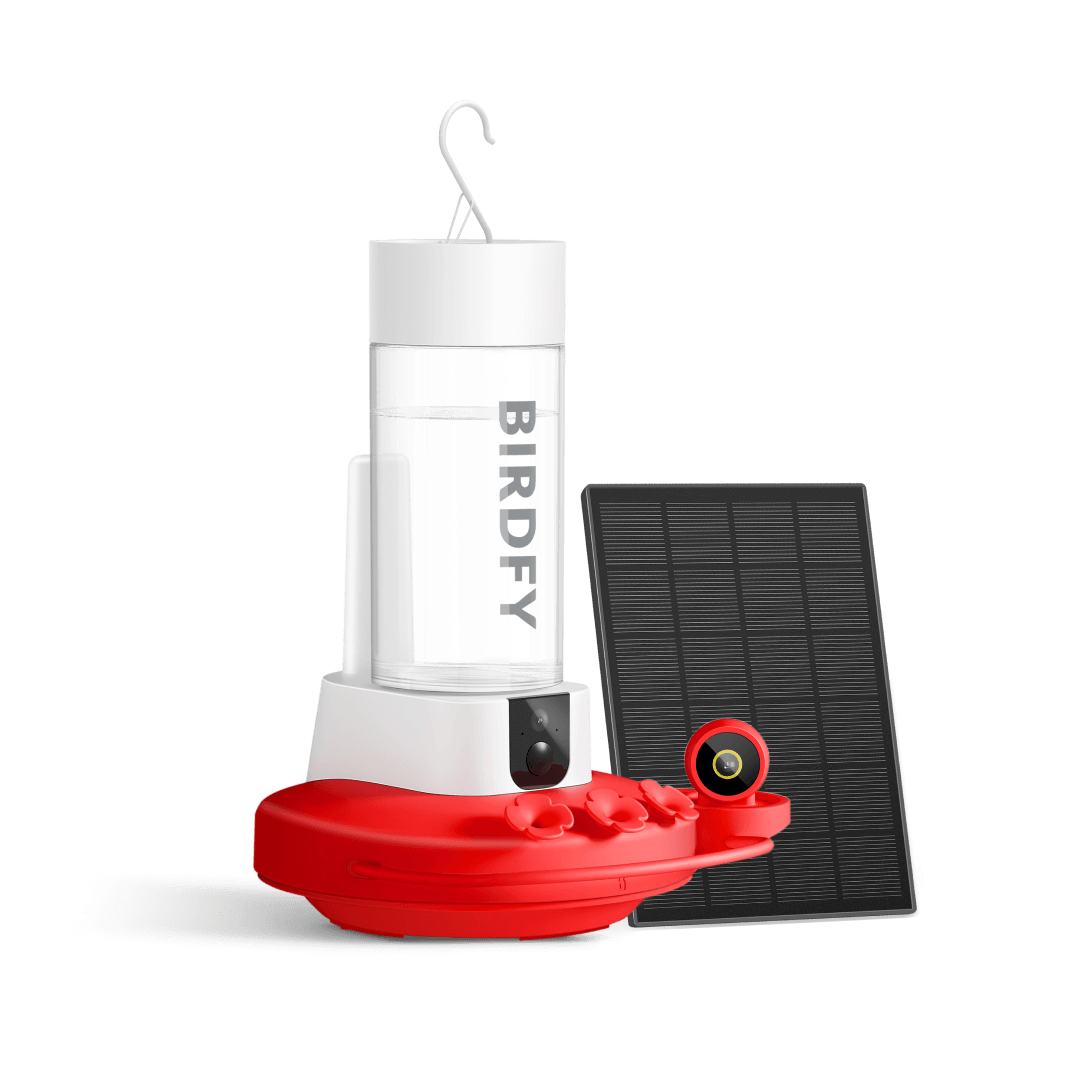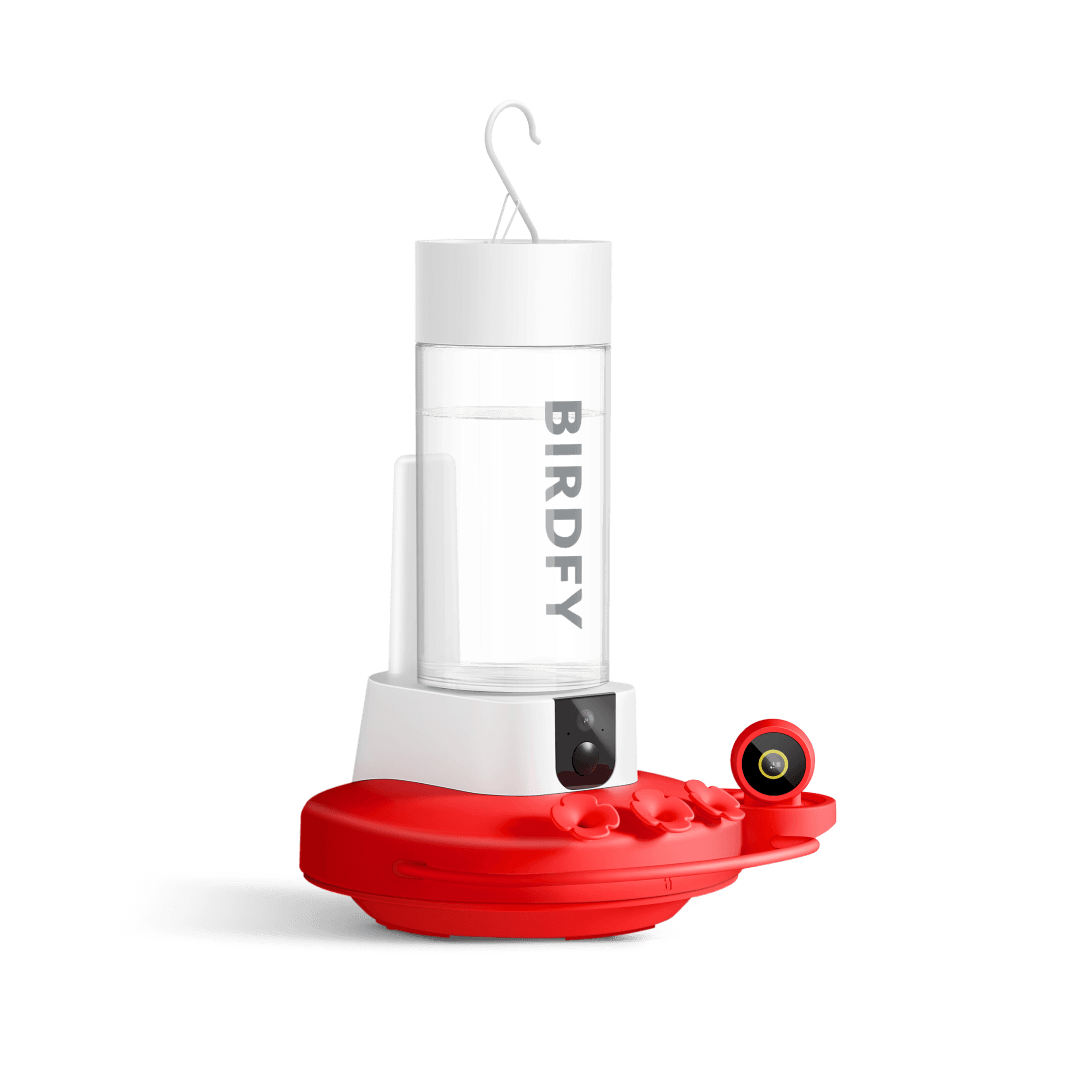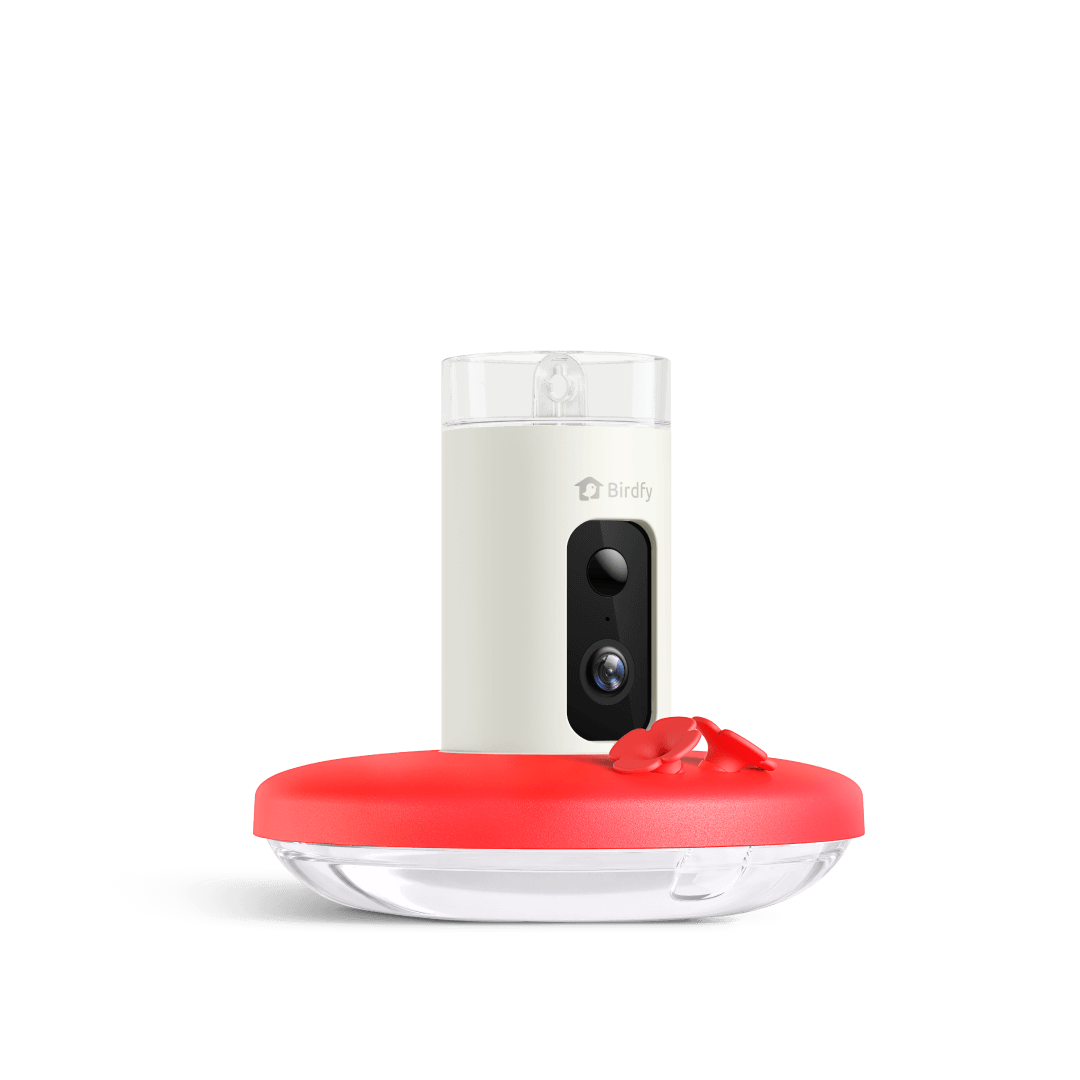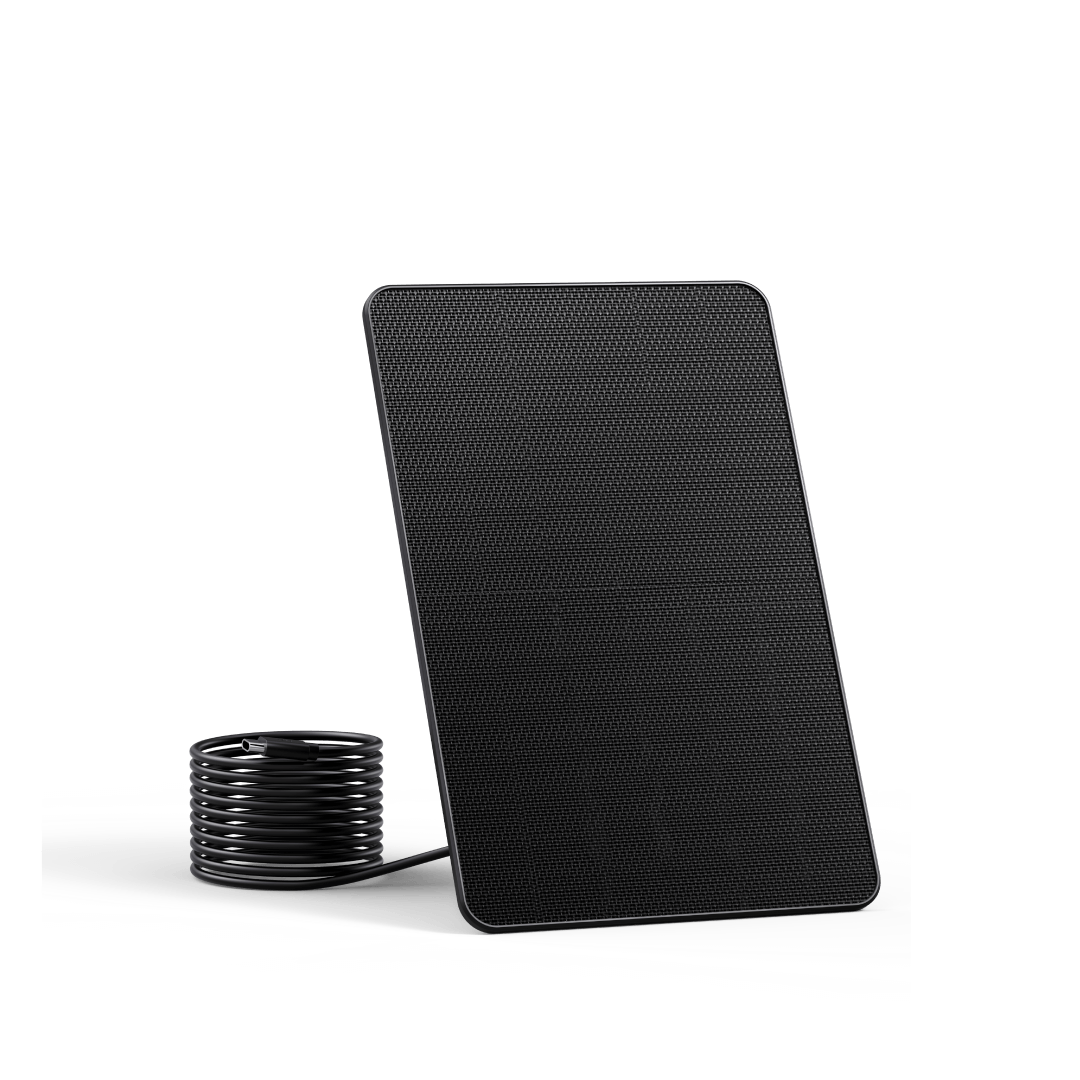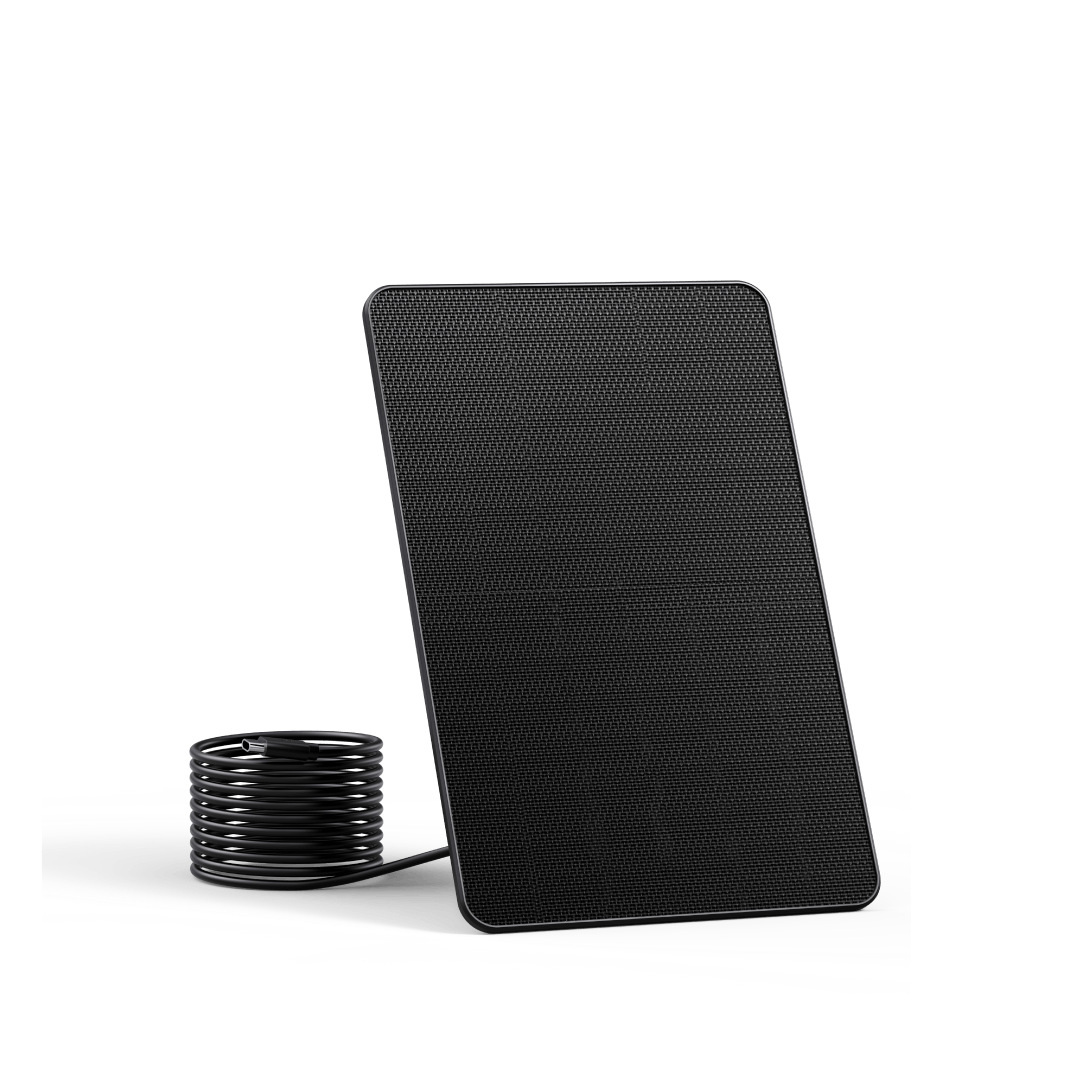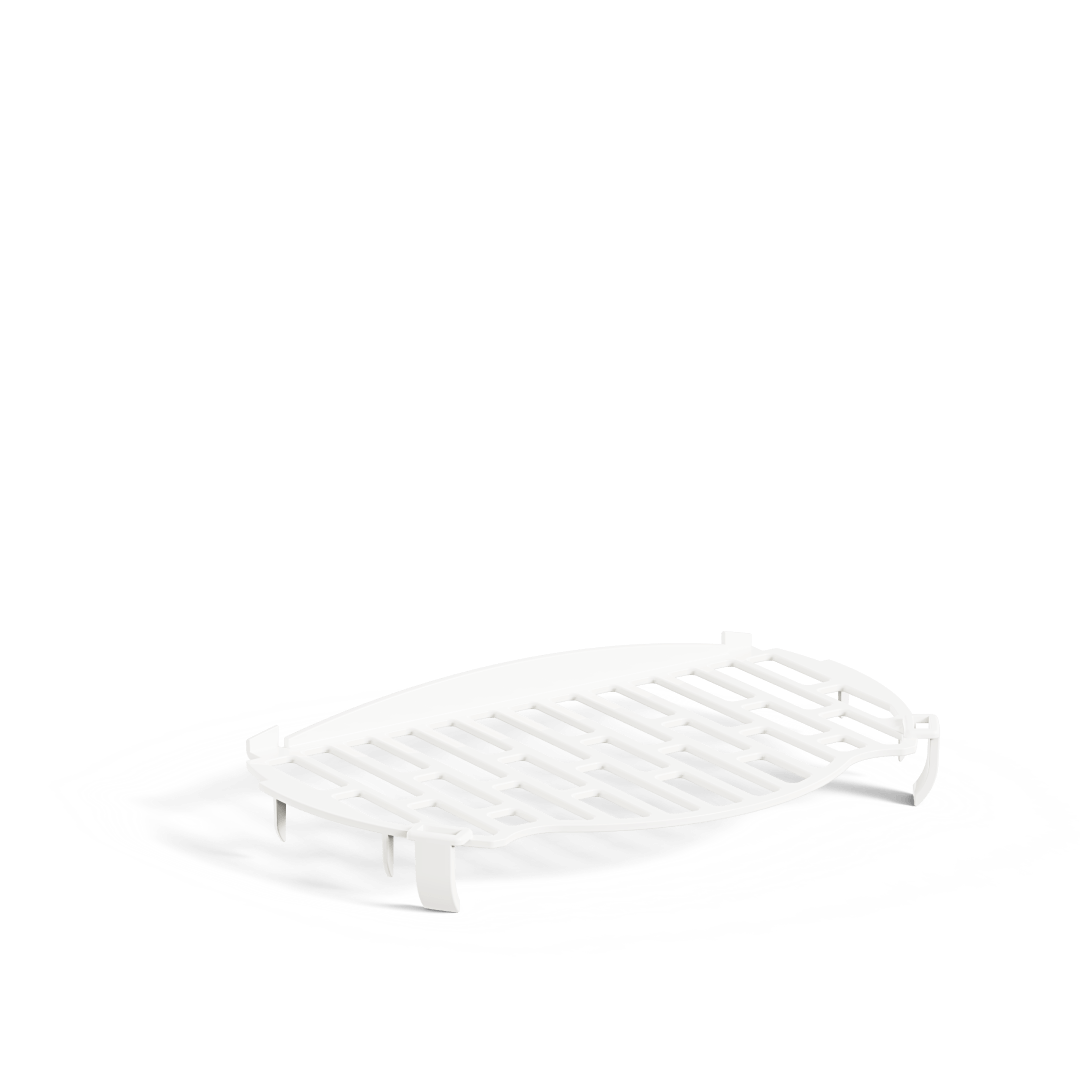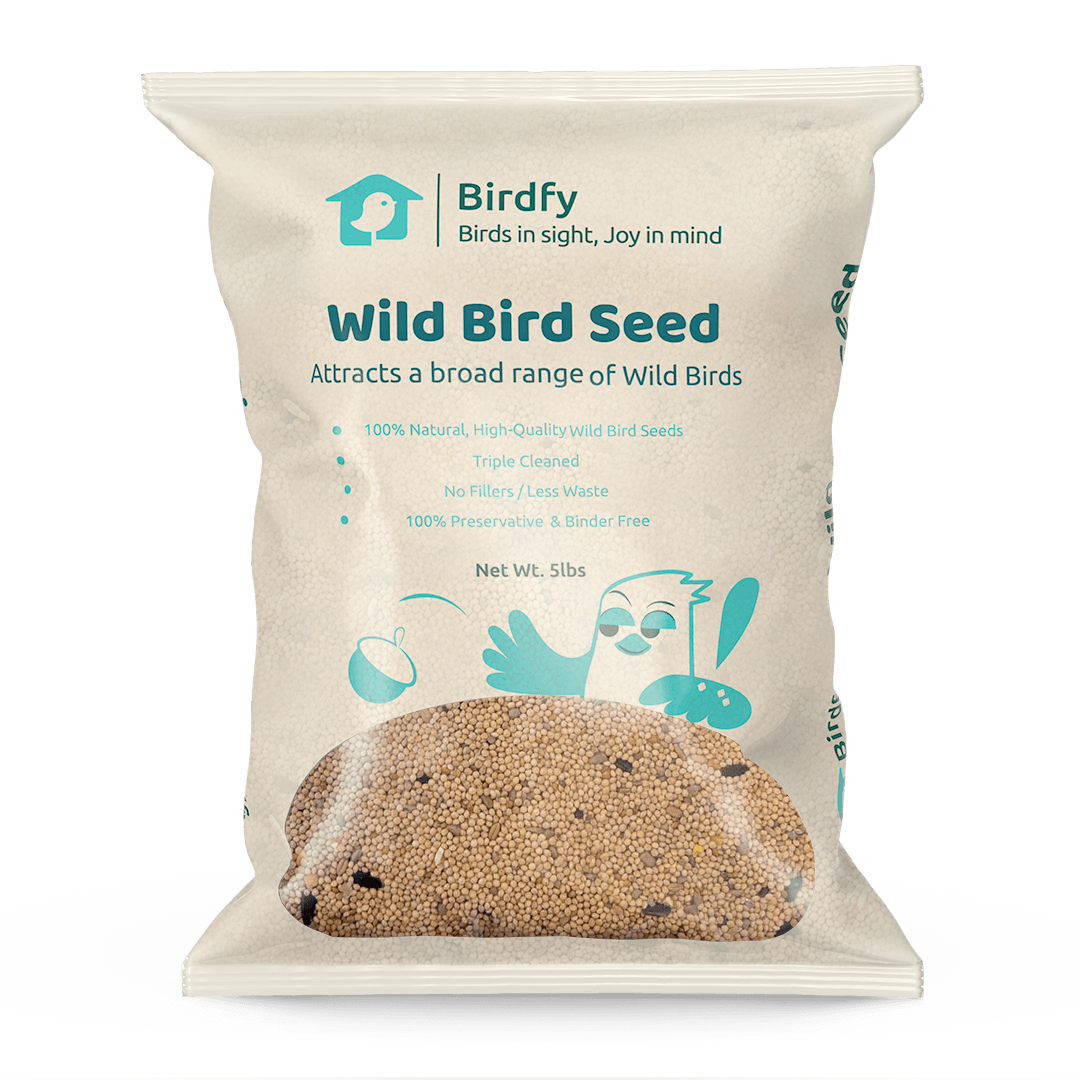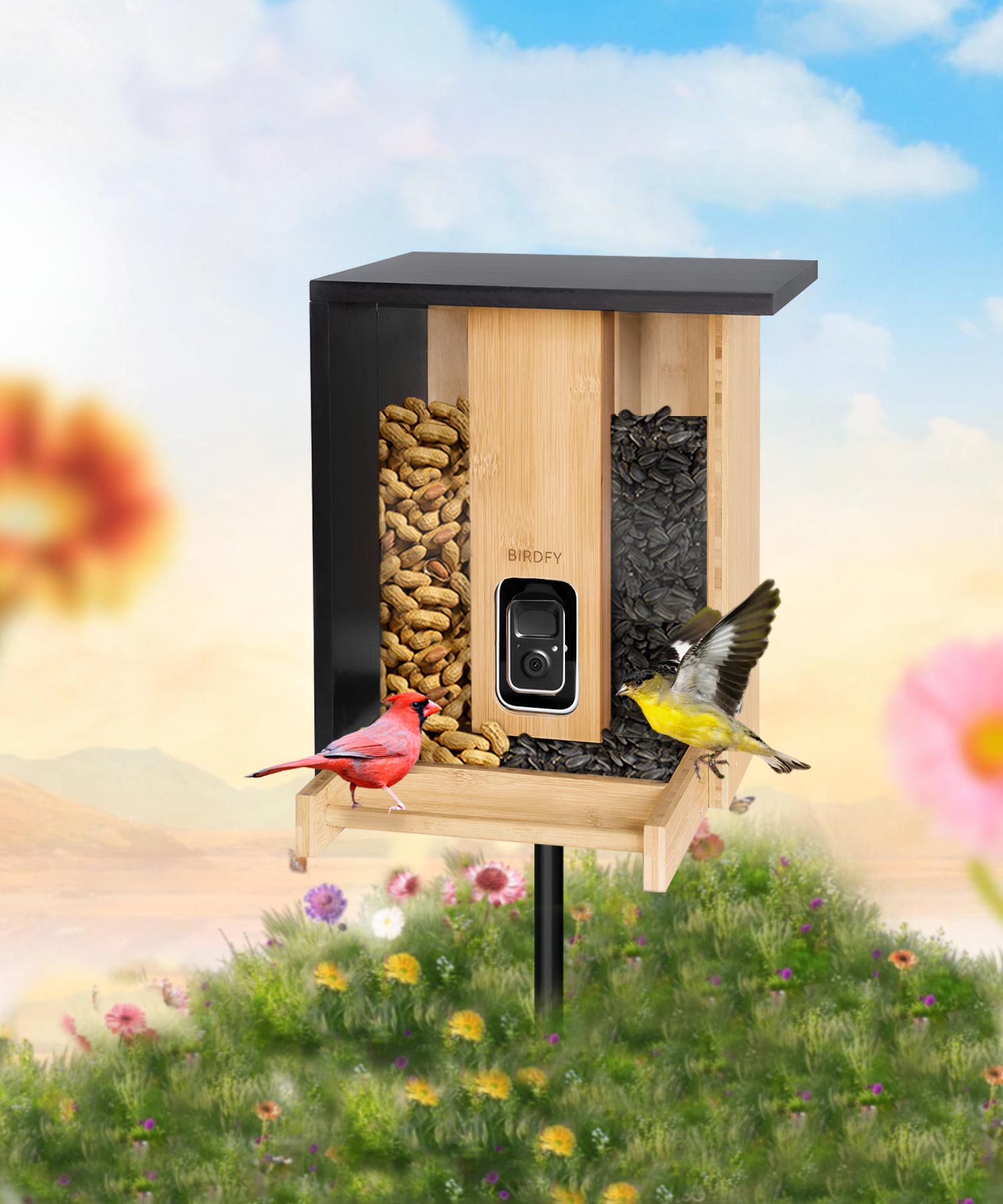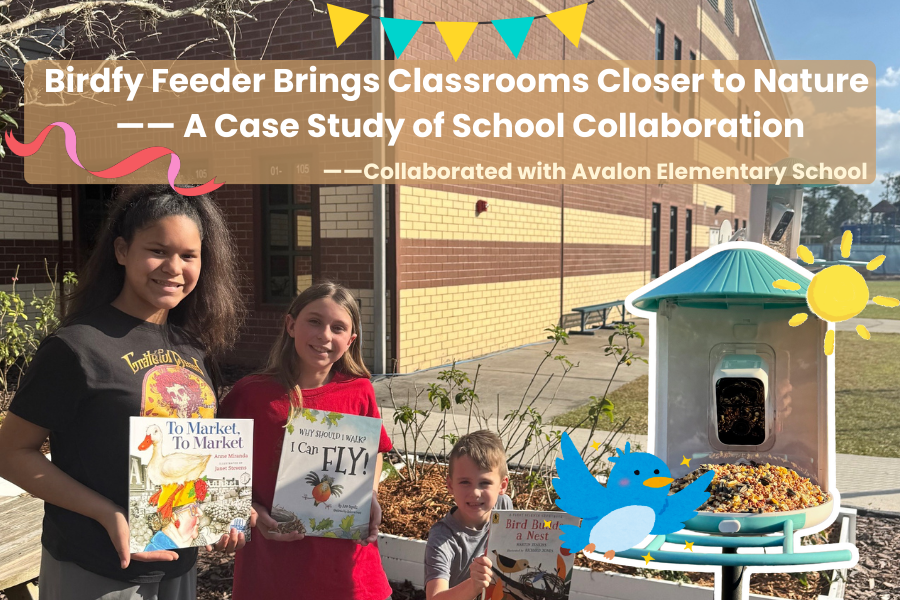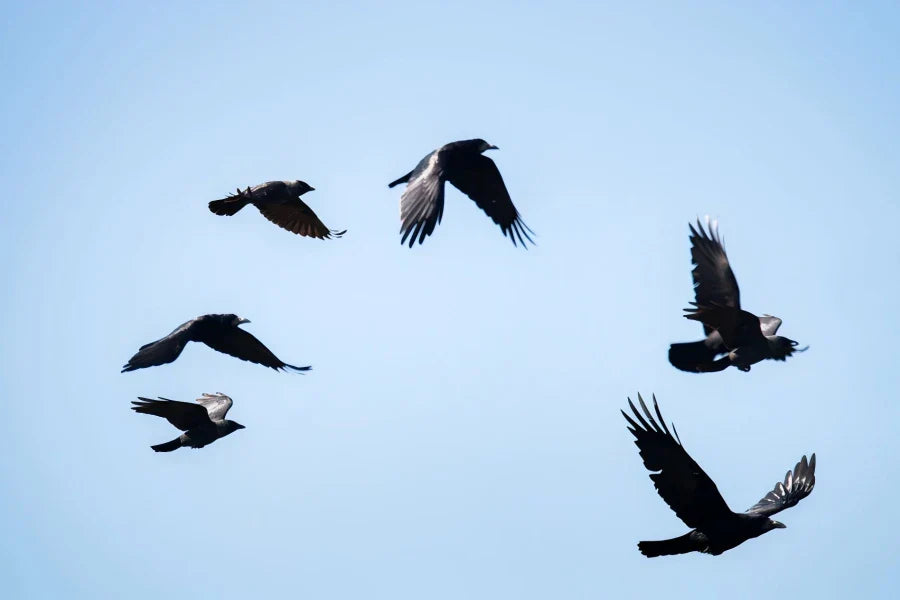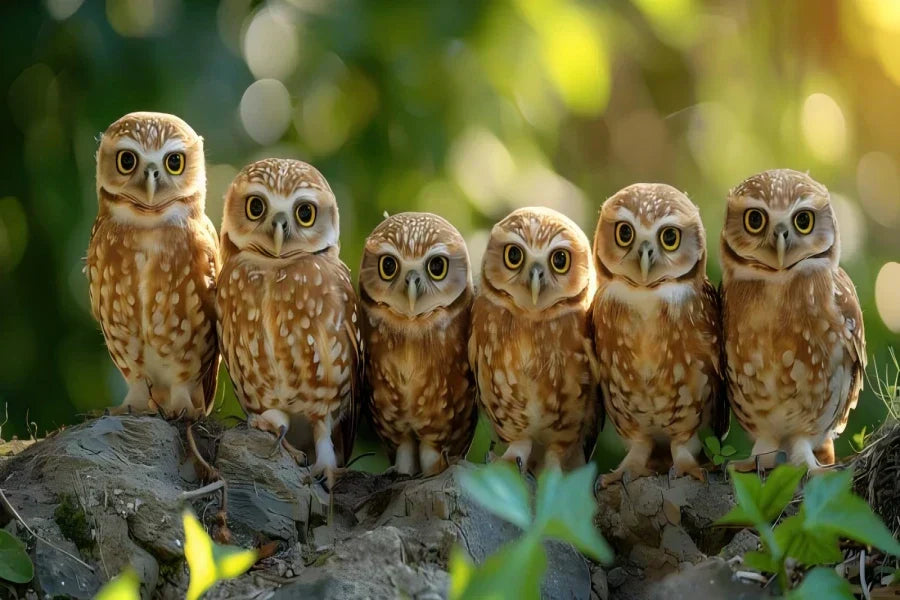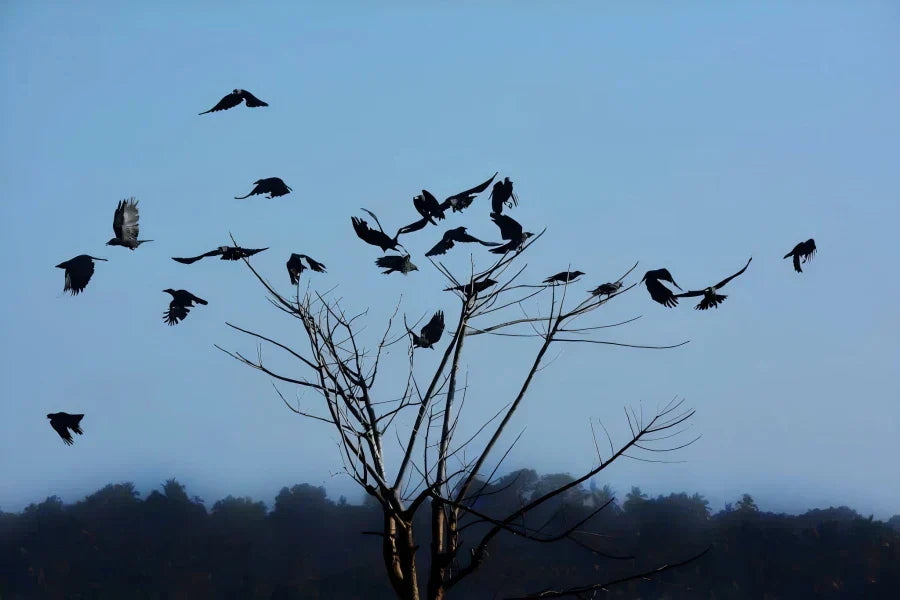Feeding Fledglings: A Guide to Feeding Baby Birds
Do you want to know what baby birds eat? Birds are cute, but at the same time, they are very fragile. We need to know what baby birds eat if we want to protect them better. If you find a lost or injured baby bird, you need to know how to feed them. In this blog, we will discuss the different types of food that baby birds can eat and provide tips on how to feed them properly.

What Are Baby Birds?
# Types of Baby Birds
There are two types of baby birds in the world right now. One is Altricial Birds and the other is Precocial Birds. The main difference between Altricial birds and precocial birds is feathers. Altricial birds are born without feathers, on the other side precocial birds are born with down feathers. Altricial birds are completely dependent on their parents for food and warmth in nests. Other side, Precocial birds can walk and follow their parents after birth. Some of the Altricial birds are Robins, Sparrows, Finches, Blue jays, etc and some of the precocial birds are ducks, chickens, quails, geese, etc.
| FEATURE | ARTICIAL BIRDS | PRECOCIAL BIRDS |
| Development At Birth | Born mostly naked and helpless |
Born with feathers and can walk shortly after hatching |
| Eyes | Eyes are closed at birth | Eyes are open at birth |
| Mobility | Immobile at birth; stay in the nest | Able to walk and move around soon after hatching |
| Feeding Needs | Completely dependent on parents for feeding and warmth | Can find and eat some food on their own but still need guidance |
| Examples | Robins, Sparrows, Blue Jays | Ducks, Chickens, Quails |
# Identifying Baby Birds and Their Species
This is the most important part for a baby bird. You must need to know the species of baby birds that you are finding or caring for is essential for providing them right amount of food and care.
- Plumage Patterns: Observing feather patterns and colors.
- Beak Shape and Size: Different species have distinct beak characteristics.
- Calls and Vocalizations: Baby birds have unique calls that can help identify their species.

# How Baby Birds Grow
Baby birds grow in just 3 stages. If you want to help a baby bird you must need to know the growth states of baby birds. Here is the stages list:
- Hatchlings: After hatching they are born naked and with blind eyes.
- Nestlings: In this stage they are featherless or with some, mostly confined to the nest.
- Fledglings: They got fully feathered all over their body and learned to fly but still need care.
Should You Help the Baby Bird?
# How to Know if the Birds Need Help
Before helping, it is important to know that if the bird needs help, is the bird a nestling or a fledgling? Nestling and fledgling are baby birds' different stages of development. As a helper, you just need to know these stages. If you find a nestling on the ground, just go for help because they need help. Just trying to put back the bird in their nest if it's safe. If the nest is very high or destroyed, you can create another nest nearby and put it. Fledglings, usually do not need help because they are under their parent's care.
* Signs the Bird Needs Help:
- Visible Injuries: If the bird has visible injuries, broken wings, or is bleeding, it needs help.
- Weakness: If you find a weak bird, it needs help.
- No Parent in Sight: Sometimes a nestling leaves their baby for a long time.
- Immediate Danger: If the birds face danger from the pets, children, or big predators, just go and help them.
# What to Do if the Bird Needs Help
- Understanding the situation
- Try to locate the nest
- Create a safe space
- Observe from a distance
- Contact a wildlife rehabilitator
What to Feed Baby Birds
You need to be careful while feeding baby birds. Different species of birds have different food. It is very essential to give them the right amount of food for their growth and health.
# Understanding Baby Birds' Diets
After having basic knowledge of the types of food that baby birds can eat, you have to choose the specific type. Different birds have different diet plans. Understanding these dietary differences is critical to baby bird conservation because it reflects their ecological roles, preferred habitats, and relationships with other species.
Carnivorous birds
Carnivorous birds, such as hawks, eagles, and falcons, consume primarily animal flesh. Their diet is rich in protein and fat, necessary to provide energy, promote muscle development, and maintain strong, sharp beaks and talons.

Herbivorous birds
Herbivorous birds, such as parrots and pigeons, feed primarily on plants, including seeds, fruits, and vegetation. Herbivorous birds usually have specialized beaks that crack seeds or extract nectar from flowers. These foods are rich in carbohydrates, fiber, and essential vitamins, and the calcium in the food is vital to maintaining healthy bones in herbivorous birds.

Omnivorous birds
Omnivorous birds, such as crows and pigeons, have a more varied diet that includes both plant and animal foods. Omnivorous birds require a balance of proteins, carbohydrates, and fats. And they are highly adaptable to their food.
# Foods for Different Birds

Here is the complete table for these three types of diets for baby birds.
| DIET TYPE | DESCRIPTION | WHAT THEY EAT | EXAMPLES |
| Insectivores | Birds mainly eat insects | Mealworms, Crickets, Commercial insectivore food, Boiled eggs (crushed) |
Robins, Blue Jays, Sparrows |
| Granivores | Birds mainly eat seeds and grains | Seed mixes, Millet, Cooked rice, Oatmeal | Finches, Sparrows, Canaries |
| Omnivores | Birds that eat a mix of insects, fruits, and seeds | Insects, Soft fruits (berries, apples), Seed mixes | Crows, Cardinal, Woodpeckers |
What Foods Are Good for Them
Insects
People often feed baby birds soft insects, such as caterpillars, ants, and yellow mealworms. Insects offer the protein and fat needed for baby bird's rapid growth. Some birds, especially those feeding in aquatic environments, may consume soft-bodied invertebrates such as larvae, worms, and aquatic insects.
Seeds
The seeds that have been partially digested by adult birds were a common food source for baby grain-eating birds such as finches and pigeons. These seeds provide a mixture of carbohydrates, fats, and essential nutrients. Birdfy Organic Bird Seed would be a great choice. Birdfy organic bird seed deeply committed to the health and high-quality nutrition of birds, is proud to announce its partnership with Flying Colors, offering the healthiest bird seed on the market!

Meat
Carnivorous baby birds can be fed small pieces of meat such as lean chicken or fish. Meat provides a good amount of protein and fat that promotes muscle development in baby birds and helps them thrive.
Fruit
Soft, ripe fruits provide natural sugars, vitamins, and minerals for omnivorous baby birds. Fruits such as berries, chopped grapes, or melons are suitable for omnivorous baby birds.
Nectar
Nectar-eating birds such as hummingbirds and long-tailed lorikeets can be fed a specialized nectar solution containing vitamins and minerals. Nectar provides high energy for these active baby birds.
Eggs
Some birds, especially larger birds such as eagles, can be fed boiled eggs for protein. In addition, eggs provide them with amino acids that are vital for growth.
What Foods to Avoid
Milk and Bread
Baby birds are sensitive to all types of foods that are not suitable for them. Do not feed milk and bread to baby birds! Many people may take it for granted that they can choose foods suitable for human babies to feed to baby birds. However, they are not humans and they cannot digest milk and bread. This kind of food can cause life-threatening diseases in birds.
Human Foods
Avoid giving baby birds cooked human foods such as soup, snacks, and candy. Because their nutritional needs are different from ours, high levels of salt, sugar, and artificial additives could kill baby birds.
Raw Meat
Although some birds will eat live things like insects and small animals in the wild, without proper preparation, it can introduce harmful bacteria and parasites.
Large Seeds
Baby birds may have difficulty swallowing large seeds or nuts. Improper feeding may cause large seeds to become lodged in the baby bird's throat and cause choking. If seeds are part of a bird's natural diet, make sure they are cut to the proper size!
Avocados
Avocados contain a substance called persicin, and it can be toxic to birds, avoiding feeding any part of an avocado to baby birds.
Caffeine and Alcohol
Like humans, caffeine and alcohol can be harmful to birds. Do not feed your baby bird food containing alcohol and caffeine.
| SUBJECT | DETAILS | EXAMPLE TOOLS & METHODS |
| Feeding Tools | Tools used to administer food to baby birds | Syringes, Droppers, Feeding tubes, Soft spoons, and Tweezers |
| Food Preparation | How to prepare and present food | Use commercial bird formula for balanced nutrition, Homemade diets only in emergencies, and ensure safety |
| Feeding Frequency | How often to feed the baby birds based on their age | Newborns (Hatchlings): Every 15-20 minutes during the day, Older Babies (Nestlings and Fledglings): Every 30-60 minutes |
| Feeding Position | The correct way to hold the bird during feeding | Keep the bird upright and stable, Ensure the beak is aligned to prevent choking |
| Feeding Amount | How much food to give per feeding? | Adjust based on the bird's size and age, Avoid overfeeding, monitor for signs of fullness |
| Cleaning | Keeping feeding tools and the bird's environment clean | Wash hands before and after handling, Clean tools with hot, soapy water, and Ensure food is fresh and free of contaminants |
Tips for feeding baby birds
Knowing what to feed a baby bird, the next step should be how you can feed them appropriately. Feeding baby birds requires careful attention to their needs. Here are some tips to help you better feed a baby bird.
Identify the Species
You have to have a basic understanding of the type of baby bird. After identifying bird species, you can know what diet would be suitable and provide appropriate species-specific foods.
Contact Wildlife Experts
If you find an injured baby bird, contact your local wildlife rehabilitation center or avian veterinarian for help. They can provide specific and effective advice based on the different needs of the bird.
Use of suitable tools
Choose appropriate feeding tools such as syringes, straws, or specialized bird feeding tubes to imitate the natural feeding process and help ease baby birds' nervousness or fear. Birdfy provides a cozy and comfortable Birdfy Nest for baby birds.
Hygiene is essential
Clean feeding tools thoroughly before each use to prevent contamination. Besides, wash your hands before handling the baby bird and the feeding equipment.
Conclusion
This blog discusses a variety of foods suitable for different baby birds, including insects, seeds, meats, fruits, nectar, and eggs. The following part analyzes the differences in the diets of carnivorous, herbivorous, and omnivorous birds, emphasizing the critical role of appropriate feeding foods for their healthy development. It concludes with tips for feeding baby birds, including identifying the species, contacting a wildlife expert, using the right tools, and maintaining hygiene to ensure the health of these fragile creatures.
1 comment
Google.com



